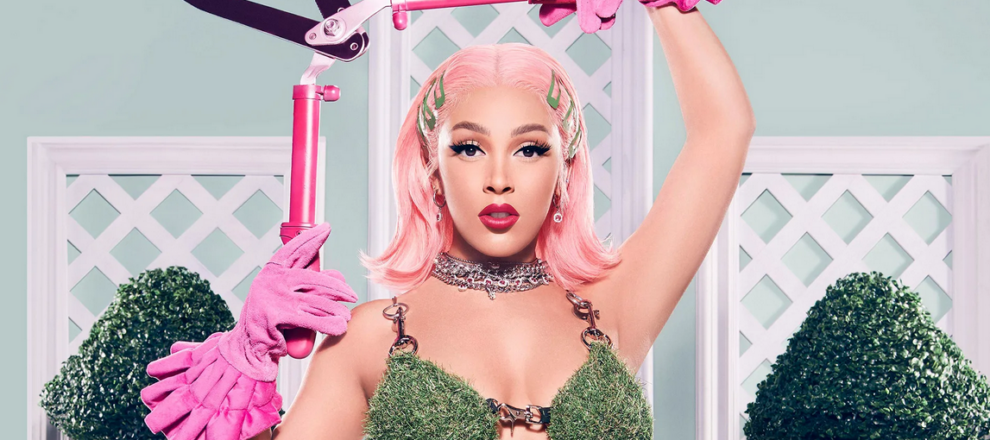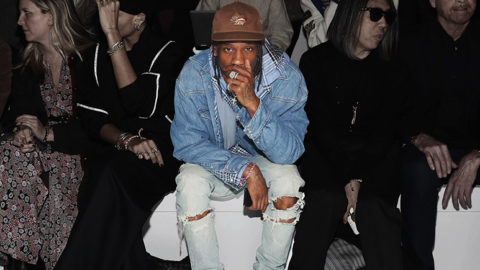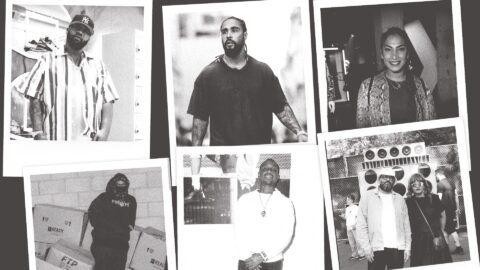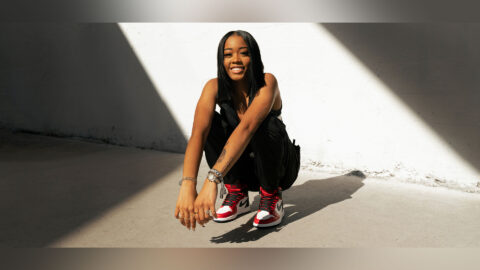With “Streets” reaching the top 20 on this week’s Hot 100 chart, the pop star’s sophomore LP has not-so-quietly become a long-tail smash.
For the top brass at RCA Records, Doja Cat’s “Streets” had always been a highlight off of her 2019 sophomore album, Hot Pink — they just never saw it becoming a hit.
“We all love that song,” Tunji Balogun, executive vp A&R at RCA, tells Billboard, “but we never really focused on it from the beginning of the project.”
By the time Hot Pink was released Nov. 7, 2019, RCA had already released a remix of “Juicy” featuring Tyga and the Blink-182-sampling “Bottom Bitch.” Next came “Say So,” Doja Cat’s breakout smash that topped the Billboard Hot 100 in May, and “Like That,” featuring Gucci Mane, followed it onto the Hot 100’s top half.https://d9601804043e922aa20eb403feee53e2.safeframe.googlesyndication.com/safeframe/1-0-37/html/container.html
By the end of 2020, Doja Cat was already working on a new album while contributing features to other artists’ tracks. “Truthfully, I think the cycle was so long with ‘Say So’ and ‘Juicy’ and ‘Like That’ and others, it sort of felt like we had moved off the album,” says John Fleckenstein, RCA COO. “But, as we’re seeing, clearly we have not. The fans are not done with it yet.”
On the chart dated Jan. 23, 2021, “Streets” made its Hot 100 debut, and this week the song bumps up seven spots to No. 18, unexpectedly but decisively prolonging Doja Cat’s Hot Pink era. An R&B post-breakup ballad that showcases Doja Cat’s vocal range and emotional depth — over a sample of B2K’s 2003 deep cut “Streets Is Callin,” no less — “Streets” has morphed from a fan favorite album cut to a hit single in a matter of weeks. It’s now Doja Cat’s second top 20 hit as a lead artist — while sounding nothing like her first.
When Hot Pink was released in November 2019, Doja Cat was already an industry veteran, though still a mainstream curiosity. A SoundCloud artist in the early 2010s, who signed with Kemosabe/RCA at the age of 17, she was a half-decade into her recording career when “Mooo!” — an absurd but beautiful jazz-rap track about individualism (as well as life as a cow on a farm) — became a viral sensation in 2018. “Mooo!” was featured on Doja Cat’s 2018 debut, Amala, which drew positive reviews and included her first Hot 100 hit, the No. 86-peaking “Candy,” but which failed to establish her as a commercial force.
“A lot of people liked Amala, and that’s great,” Doja Cat told Billboard in 2019. “However, I don’t think it was a finished album…. [Hot Pink] is a compilation of when I stopped smoking weed, and all of the stuff that just poured out of my mind when I was sitting in bed, when I was on Instagram Live, when I’m just chilling and having a true moment to myself to just create and make s— that I felt good about.”
Looks Like Ariana Grande, Doja Cat & Megan Thee Stallion Have a ’34+35′ Music Video Coming
Hot Pink debuted at No. 19 on the Billboard 200 albums chart in its first full week of release, earning 20,000 equivalent album units, according to MRC Data. Fifteen months later, the album is still in the chart’s top 20 — moving up to No. 16 on this week’s tally — and has earned a whopping 1.1 million equivalent album units through Feb. 4.
Part of that success can be chalked up to “Say So,” which blew up on TikTok, served as Doja Cat’s pop radio breakthrough and reached the top of the Hot 100 last May when Nicki Minaj hopped on a remix. Yet if that disco-tinged smash was Doja Cat’s mainstream introduction, the bright colors and varied tones of Hot Pink — from the audacious pop-trap of “Juicy” to the Warped Tour vibes of “Bottom Bitch” to the muted soulfulness of “Streets” — have helped the album sustain its chart run in the months following its success.
“We are seeing that it’s single after single that’s resonating,” says Kevin Meenan, music trends manager at YouTube. “It’s not a story where she’s a top artist because she had one breakout hit — she’s had multiple breakout hits in building an audience.”https://www.youtube.com/embed/0hD-Z1q_ZyI?feature=oembed
When it came to “Streets,” Balogun says that the recent interest in the album track was sparked by a handful of live performances of the song: a Vevo Lift clip where she sings the song while emerging from a pool of milk has been a fan favorite since last March, while two different “Streets” performances for YouTube were released on Christmas Eve as part of the ‘Hot Pink Sessions,’ with 16 million combined views to date.
“Those live performances turned into their own monsters on the Internet, and then were crossed over to TikTok and Instagram and Triller,” Balogun says. Indeed, “Streets” grew 267% on TikTok from Jan. 6 to Feb. 6, according to music data analytics firm Chartmetric, and soundtracked her version of the ‘Silhouette Challenge’ on the app earlier this month.
Yet Balogun, who has known Doja Cat since her SoundCloud days in 2013, believes that she’s far too Internet-savvy to not have picked up early on the swelling support of “Streets.” Doja Cat constantly interacts with fans on social media, hoisting up memes and Internet trends (she included the dancers who helped popularize the “Say So” TikTok dance in its official music video) while gleefully making herself the butt of a joke.
While the fan base that Doja Cat has developed over many years has helped amplify her wins, they’ve also attempted to shield her from controversy — defending her from criticism she’s faced for racially insensitive remarks, and her continued work with Lukasz “Dr. Luke” Gottwald amidst abuse allegations against the producer made by Kesha. Although there has been some backlash — a 2015 song that used perceived racial slurs resurfaced last year, resulting in Doja Cat issuing a statement describing it as a “bad decision”; meanwhile, her Dr. Luke collaborations continue to earn criticism from the artistic community — the singer’s ascent has not been obviously slowed down, as she’s earned top 40 airplay, primetime TV performances, and recently, multiple Grammy nominations, including for best new artist.
That support has helped sustain momentum as Doja Cat has hit the mainstream. “Doja built an underground fan base way before she became a pop star, and a lot of those kids are still engaged,” notes Balogun. “And that’s really the bedrock of her pop audience — it’s a real core fan base of diehards that have been tuning into her for seven, eight years now. It feels like it’s overnight, but there’s a lot of real solid foundation underneath everything that’s happened.”
As “Streets” has rocketed up the Hot 100, Doja Cat can also be found at No. 42 on this week’s chart thanks to “Best Friend,” her recent collaboration with Saweetie, and was recently at No. 2 on the chart as part of Ariana Grande’s “34+35” remix with Megan Thee Stallion. Her follow-up to Hot Pink is still on its way, Balogun confirms: “I’m really looking forward to getting into the new music too, because the new music is just as engaging as the stuff on Hot Pink.” In the meantime, RCA has to play catch-up with the radio strategy for “Streets” following its unexpected success, but Fleckenstein isn’t concerned with over-saturation.
“It’s a little bit of a Rubik’s cube in terms of some of these features and her own records, but for the most part I think we’ve been very successful in navigating that,” says Fleckenstein. He believes that we may see such fan-boosted deep cuts altering rollout strategies on a more case-by-case basis, but that the success of “Streets” nods more to the changing nature of single strategies. Fans have more say than ever when it comes to which songs should become a focus for an artist — including songs that are months, or even years, old, deemed worth resurrecting as a new hit.
“‘Streets,’ that’s just beginning now, but it’s raging to the forefront — mostly because of what’s happening online, not because we consciously said, ‘Hey, time to go for another single off of this album,’” says Fleckenstein. “It’s because the fans have voted it back to the top again, in a really wild, compelling way.”





